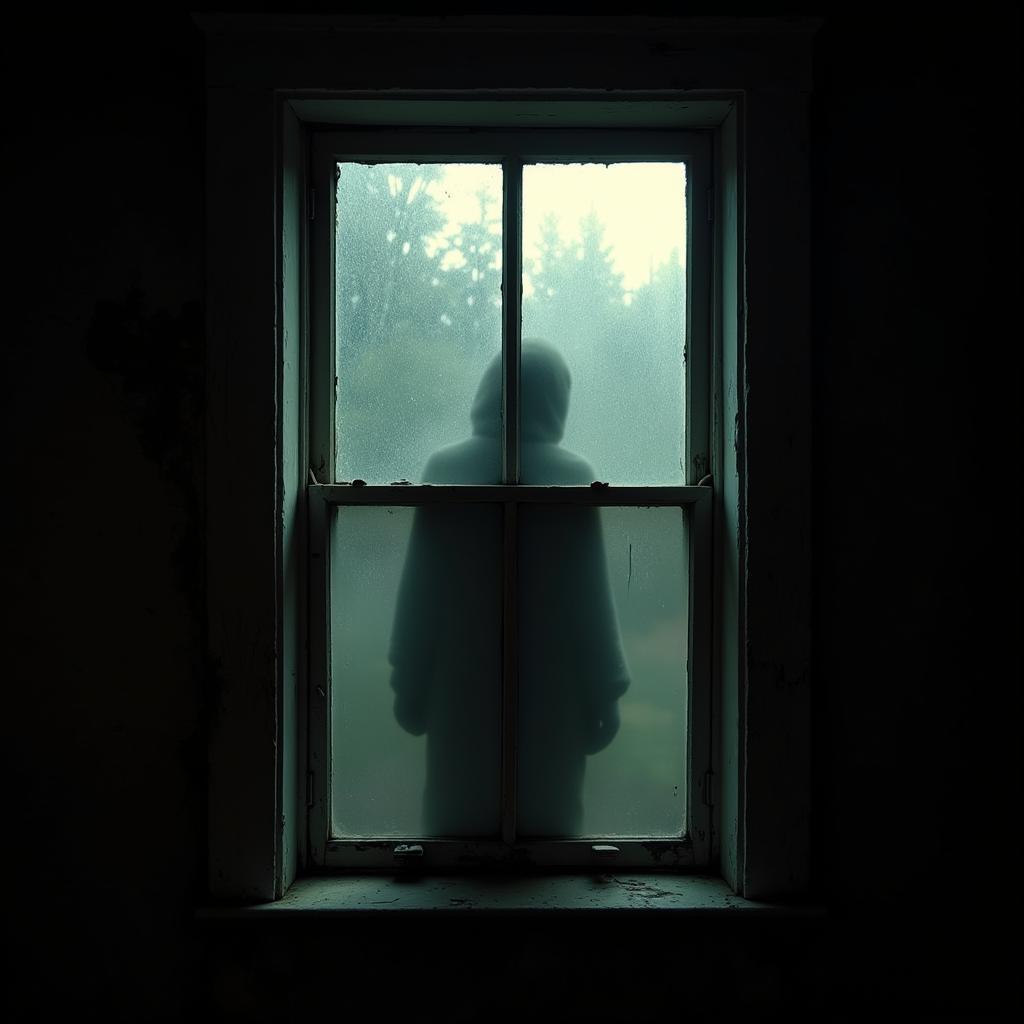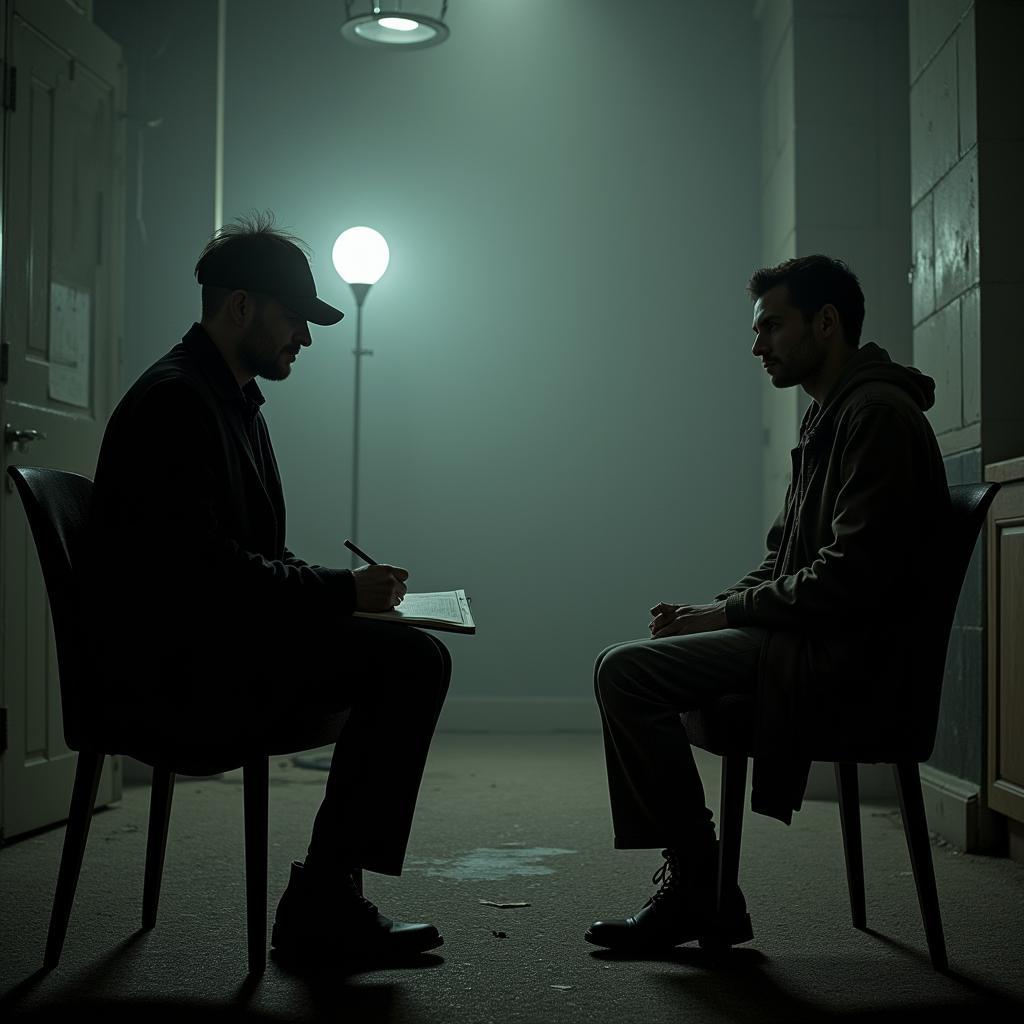Ethnographic Research Questions are essential tools for researchers delving into the heart of cultural practices and beliefs, and this holds especially true for those investigating the paranormal. By framing inquiries that explore the “why” and “how” of unexplained phenomena within their cultural context, we gain deeper insights into the human experience of the unknown.
The Power of Perspective: Why Ethnographic Research Questions Matter in Paranormal Investigation
Unlike quantitative research seeking statistically significant data, ethnographic research delves into the nuances of human experience. This is particularly relevant in paranormal investigation, where experiences are often subjective and deeply personal.
Let’s consider an example: a supposed haunted house. A quantitative approach might measure electromagnetic frequencies or temperature anomalies. However, ethnographic research questions would focus on the stories, beliefs, and rituals associated with the haunting.
- What are the local legends surrounding the house?
- How do previous occupants describe their experiences?
- Are there any cultural or religious beliefs that might offer context?
 Ethnographic Research at Haunted House
Ethnographic Research at Haunted House
These questions shift the focus from proving or disproving a haunting to understanding its significance within a specific cultural and historical context.
Crafting Effective Ethnographic Research Questions: A Guide for Paranormal Researchers
Developing strong ethnographic research questions is crucial. Here’s a breakdown:
1. Start with Curiosity and an Open Mind
The most compelling research questions arise from genuine curiosity. Approach your subject with a willingness to explore multiple perspectives and challenge your own assumptions.
2. Identify Your Focus: Narrowing the Scope
The paranormal encompasses a vast spectrum of experiences. To conduct meaningful research, define a specific area of interest, such as:
- Ghostly Encounters: Investigating the cultural interpretation of apparitions.
- Psychic Phenomena: Exploring the social dynamics of individuals claiming psychic abilities.
- Cryptozoology: Examining the folklore and eyewitness accounts of cryptids in specific regions.
3. Context is Key: Embedding Your Questions
Ethnographic research thrives on understanding the social, cultural, and historical backdrop of a phenomenon. Your questions should reflect this.
For instance, instead of asking, “Do you believe in ghosts?” consider:
- “What stories have you heard about ghosts growing up in this community?”
- “Are there any rituals or practices associated with spirits in your culture?”
 Paranormal Investigator Interviewing Witness
Paranormal Investigator Interviewing Witness
4. From Broad Strokes to Fine Details: Using Open-Ended Questions
Open-ended questions encourage detailed responses, providing valuable insights.
Consider the difference between:
- Closed-ended: “Have you ever seen a UFO?” (Yes/No answer)
- Open-ended: “Can you tell me about a time when you witnessed something you couldn’t explain?” (Invites a narrative response)
Examples of Ethnographic Research Questions in Paranormal Investigation
Here are a few examples to illustrate how ethnographic research questions can be applied to various paranormal subjects:
Topic: The Legend of a Haunted Cemetery
- How did the stories surrounding the cemetery originate, and how have they evolved over time?
- What rituals or traditions do people practice when visiting the cemetery, particularly at night?
- Are there any social or cultural factors that might contribute to the perception of the cemetery as haunted?
Topic: Psychic Mediumship and Communication with the Deceased
- What are the cultural beliefs surrounding death and the afterlife within this community?
- How do individuals who claim to communicate with the dead describe their experiences and abilities?
- What is the role of ritual and symbolism in the practice of mediumship?
- How do different types of research studies contribute to our understanding of the paranormal?
Conclusion: Ethnographic Research – A Path to Understanding
Ethnographic research questions offer a powerful lens through which to examine the paranormal. By moving beyond simple “proof” and delving into the human stories, beliefs, and practices surrounding these phenomena, we can gain a more profound and nuanced understanding of their significance. As we continue to explore the unexplained, embracing ethnographic methods will be essential in unlocking the mysteries of the human experience and its intersection with the paranormal.
If you’re seeking answers and wish to delve deeper into the realm of Paranormal Research, don’t hesitate to contact us. Our team at Paranormal Research is available 24/7 to provide guidance and support on your journey into the unknown. You can reach us via:
- Phone: 0904826292
- Email: research@gmail.com
- Address: No. 31, Alley 142/7, P. Phú Viên, Bồ Đề, Long Biên, Hà Nội, Việt Nam.